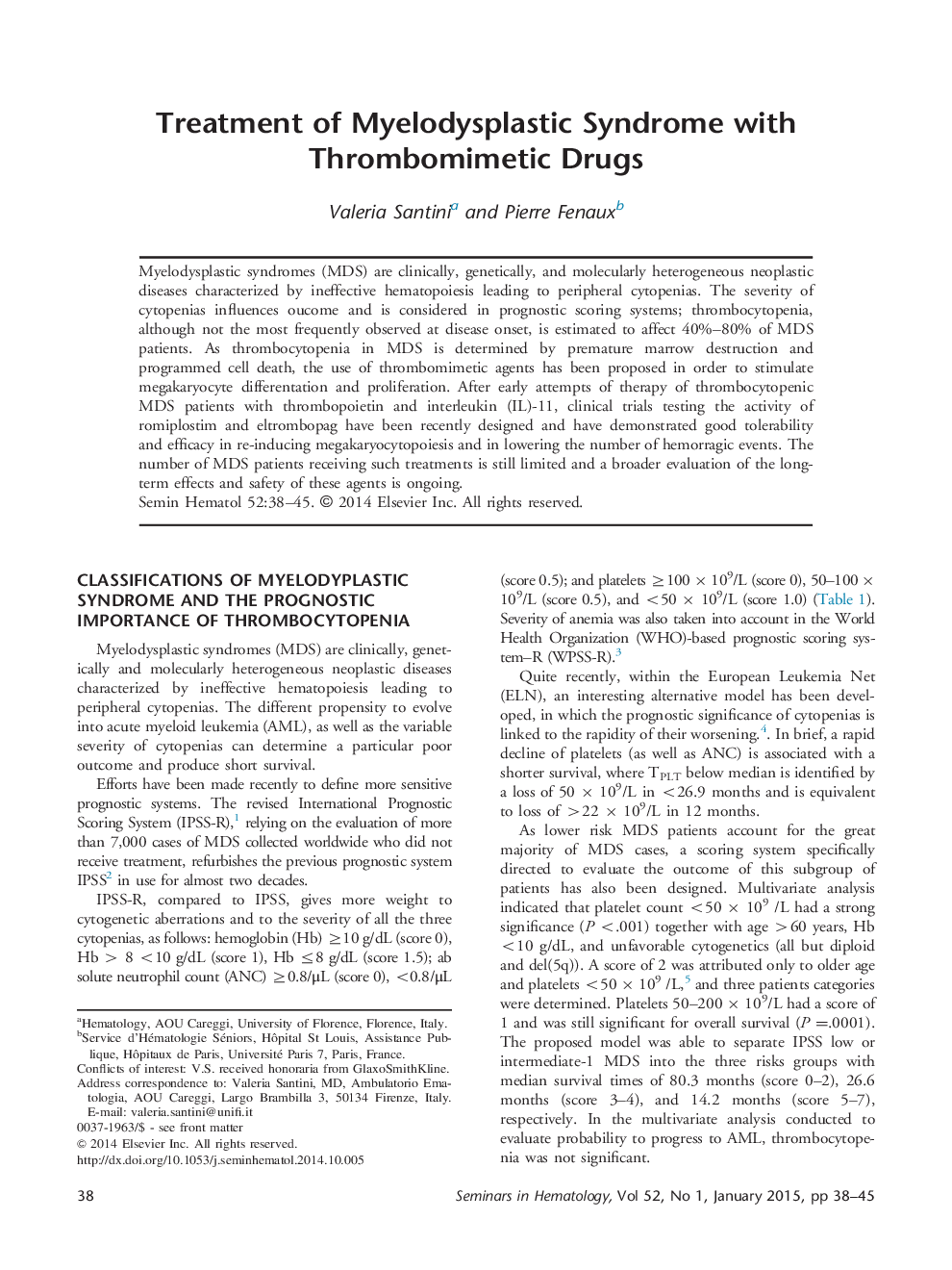| Article ID | Journal | Published Year | Pages | File Type |
|---|---|---|---|---|
| 3333495 | Seminars in Hematology | 2015 | 8 Pages |
Myelodysplastic syndromes (MDS) are clinically, genetically, and molecularly heterogeneous neoplastic diseases characterized by ineffective hematopoiesis leading to peripheral cytopenias. The severity of cytopenias influences oucome and is considered in prognostic scoring systems; thrombocytopenia, although not the most frequently observed at disease onset, is estimated to affect 40%–80% of MDS patients. As thrombocytopenia in MDS is determined by premature marrow destruction and programmed cell death, the use of thrombomimetic agents has been proposed in order to stimulate megakaryocyte differentation and proliferation. After early attempts of therapy of thrombocytopenic MDS patients with thrombopoietin and interleukin (IL)-11, clinical trials testing the activity of romiplostim and eltrombopag have been recently designed and have demonstrated good tolerability and efficacy in re-inducing megakaryocytopoiesis and in lowering the number of hemorragic events. The number of MDS patients receiving such treatments is still limited and a broader evaluation of the long-term effects and safety of these agents is ongoing.
